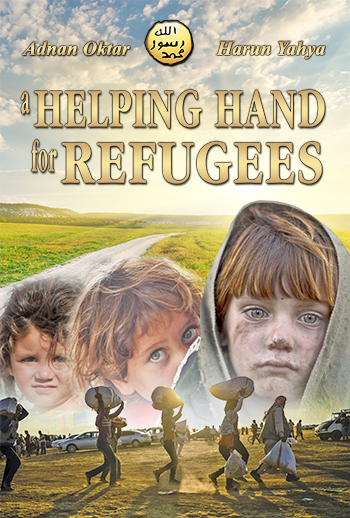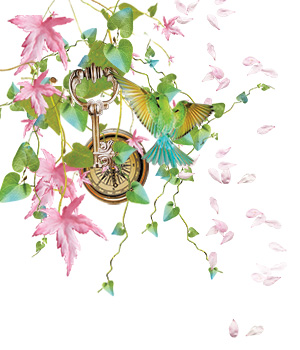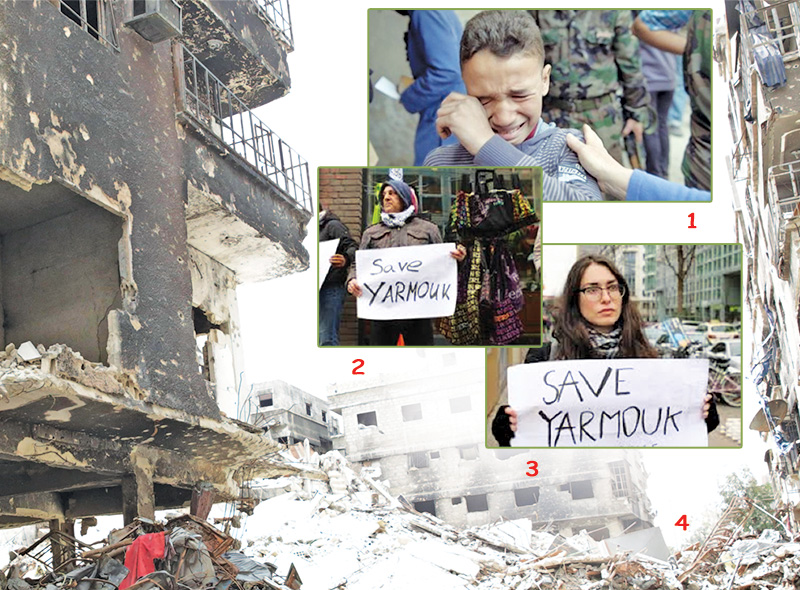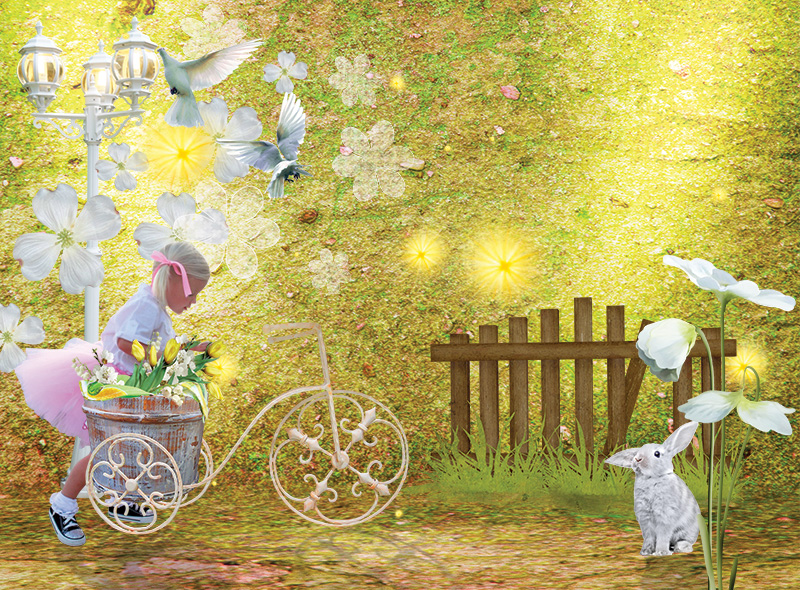Bigotry: The Dark Danger
A Helping Hand for Refugees

DOWNLOAD THE BOOK
CHAPTERS OF THE BOOK
- Introduction
- Supporting refugees is the behavior that will be most pleasing to God
- Adnan Oktar's remarks concerning refugees on A9 TV
- Events in Myanmar are crime against humanity
- A cry for help to the U.N. from Rohingya of Myanmar
- What if you were living in a refugee camp?
- The crime against humanity in Yarmouk must be ended as a matter of urgency!
- Behind the persecution in Myanmar
- How does it feel to be a Rohingya?
- One of the dozens of problems facing Yemen is immigration
- Refugees: Stopping the Madness
- The safety of our Syrian refugee brothers is entrusted to the hospitable Turkish people
- Buffer Zone: A Safe Haven for the Syrians
- A secure zone must be established at once on the Turkish-Syrian border
- The conundrum of Libya's refugees and migrants
- Drowning migrants is a blot on humanity
- Are the boat people a burden for Thailand?
- Deafening silence over Rohingya issue
- What can European countries do against the tide of Migration?
- The Rohingya Muslims are being exiled in their own lands
- Syrian refugees in the 4th year of the crisis
- Syria: The downward spiral of desolation
- Illegal immigrants: Only a statistic in Europe
- Syria’s human tragedy
- Yarmouk cries for help
- The world refugee problem can be solved with love
- Adnan Oktar's Remarks Concerning Refugees on A9 TV
- Europe must step up for humanity
- Nobody to wipe Rohingyas’ tears
- Asylum seekers: A problem of humanity or security?
- It is no economic loss to help Syrian refugees
- A heart for helping refugees
- When conscience fails, children suffer
- Events of global shame
- Will Europe pass the refugee test?
- Condemning refugees to death
- The European refugee crisis: Only if there were some empathy
- The priority in Libya must be to establish love and affection between the blocs: Consensus will then come naturally
- Refugees with no great expectation
- Walls cannot be a solution to security issues
- Refugees not a threat, but an important asset for Europe
- What will election victory bring to the people of Rohingya?
- Humans have rights on paper, but apparently not in real life
- EU, Turkey find silver lining
- Refugees are the victims of the Paris attacks, not its perpetrators
- Being leaderless is the reason behind the oppression Muslims suffer
- The EU is in danger of taking Turkey for granted
- Conclusion
< <
25 / total: 48
Yarmouk cries for helpArab News & Jefferson Corner 25 April 2015
The world of advertising is strangely self-contradictory. We are bombarded daily with commercials or ad films luring us to consume a variety of foodstuffs including different kinds of chocolates and other mouthwatering foods. On the other hand, the same channels of communication are used to offer us help against temptations, diet programs, products claiming to be less fatty yet tasty and workout programs to shed the extra pounds. The world of news media is also not that different. We see pictures of babies who could live a bit more if provided with milk; pictures of people who could survive their gunshot wound if they had access to basic antibiotics. Unfortunately, these pictures are only treated as top shots and end up as mere statistics. Yes, I am referring to the people in Yarmouk, who are left high and dry to fend for themselves in the Syrian war theater. Yarmouk had been home to 160,000 Palestinians in Syria since creation of Israel in 1948. It never was Paris for them but things were fine and people had normal lives without having to live in fear for their lives every waking hour. But when the Baath regime decided to go on a rampage against every citizen of their own country in December 2012, the people of Yarmouk were trapped in what became world's largest open-air prison. Claiming that rebels were using Yarmouk, regime forces laid siege to Yarmouk, leaving the residents without food, water and medical supplies. One particular picture became especially famous. It was a picture showing wave upon wave of people, all hungry and looking despondent, like a scene from the Middle Ages, filling up an alley waiting to get to the limited humanitarian aid available. But there were other scenes that never found their way to the mainstream media; bodies of frozen toddlers in boxes, babies that starved to death, toddlers forced to walk barefoot on ice. Or the moving BBC video showing a brave 10-year-old boy trying to put on a brave face while he described the situation. He tried to downplay it and said, "Yeah, we are hungry" but couldn't hold it anymore and started crying, completely ashamed of himself for breaking down like that.
The difference between Yarmouk and the affluent parts of the world that are struggling with obesity is so vast, the divide so stark, it's like there are two different worlds. It is almost like one of those films depicting two societies where one uses the other for amusement, watching their struggle for life. The villains of today are worse than the villains in those movies; worse yet is the fact that world watches it like a movie. Brutality, hunger and murder are now common sights to people in this part of the world. And for the others, living with the news of these things, but carrying on with their lives unaffected, is an accustomed sight. Today only 18,000 people are left in Yarmouk. In an unexpected twist of events, and to make matters even worse, the self-ascribed Islamic State (IS) seized 90 percent of this area and started its own campaign of violence as a manifestation of their skewed interpretation of Islam. The UN has urged immediate evacuation and according to the latest news, some 2,000 had already been evacuated.
Pierre Krähenbühl, Commissioner-General for the United Nations (UNRWA), is visiting Yarmouk to hear from refugees affected by the crisis, and consult with leaders on how to send aid to people in need. These are good news but clearly not enough. So what should be done? Before we start talking about the real solution to the problems in the Middle East, including those that gave rise to the IS, we have to talk about short-term and quick fixes to this very urgent humanitarian crisis. It is imperative that the UN immediately swings into action to evacuate all the civilians trapped in the area. The Security Council has already convened an emergency meeting on Monday but they need to be quicker. Cooperation with the Free Syrian Army and other opposition groups could be a way to help the civilians, which include some 3,500 children. The head of the UN agency for Palestinian refugees, Pierre Krähenbuhl, calls the situation "beyond inhumane" amid reports of Syrian regime forces dropping barrel bombs on Yarmouk. Under another scenario, a unit of Russian army could supervise the evacuation of civilians out of the area, with the help of humanitarian groups. Regime forces wouldn't oppose Russians doing the job; neither the IS would want to open a new front. Another problem these people face is the fact that they almost have no place to go. Jordan, Lebanon and Egypt have banned Palestinian refugees from Syria, and they cannot go to Iraq as most of it is under IS control. Fortunately there is always Turkey, ready to welcome people in need. An urgent statement from Turkish officials, confirming the welcoming attitude of Turkey would be a great move at the moment. The world needs to immediately start the process of getting the innocent civilians out of there. Do not forget: there are children, women, sick, injured people, old people and they need our help. Put yourselves in their shoes and do your best to help them. This article was published in Arab News & Jefferson Corner: Related Links: http://www.jeffersoncorner.com/yarmouk-cries-for-help/ Link of Article in English: Link of Article in Turkish:
|
|||||||||||
25 / total 48
You can read Harun Yahya's book A Helping Hand for Refugees online, share it on social networks such as Facebook and Twitter, download it to your computer, use it in your homework and theses, and publish, copy or reproduce it on your own web sites or blogs without paying any copyright fee, so long as you acknowledge this site as the reference.



